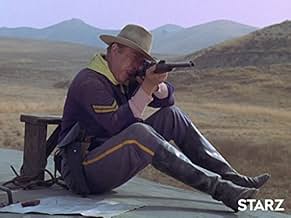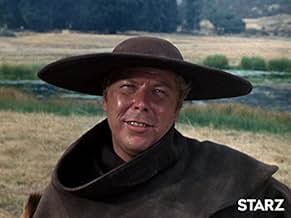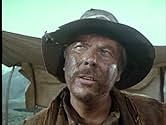Albert Salmi(1928-1990)
- Besetzung
- Soundtrack
Albert Salmi wurde am 11 März 1928 in Brooklyn, New York, USA geboren. Er war Schauspieler, bekannt für Die Brüder Karamasow (1958), Flucht vom Planet der Affen (1971) und Der Drachentöter (1981). Er war mit Roberta Pollock und Peggy Ann Garner verheiratet. Er starb am 22 April 1990 in Spokane, Washington, USA.
- Auszeichnungen
- 2 wins total
Besetzung
Soundtrack
- Alternative Namen
- Albert & Roberta
- Größe
- 1,88 m
- Geboren am
- Verstorben
- 22. April 1990
- Spokane, Washington, USA(murder suicide)
- EhepartnerRoberta Pollock25. April 1964 - 22. April 1990 (their deaths, 2 Kinder)
- KinderCatherine Ann Salmi
- ElternSvante Salmi
- Andere ArbeitenStage: Appeared (as "Roger Gatt"; Broadway debut) in "End as a Man" on Broadway. Written by Calder Willingham, based on his book. Directed by Jack Garfein. Vanderbilt Theatre (moved to The Lyceum Theatre from 17 Dec 1953-16 Jan 1954): 14 Oct 1953-16 Jan 1954 (105 performances). Cast: Robert Dirk, Anthony Franciosa (as "Starkson") [Broadway debut], Ben Gazzara (as "Jocko de Paris") [Broadway debut], Martin Greenlee, Harry Guardino (as "Cadet Officer") [Broadway debut], Richard Heimann, Pat Hingle (as "Harold Koble"), Paul E. Richards, Marc Richman, Eli Rill, Steven Ross, Warren Slocum (as "Second Orderly"), William Smithers, Arthur Storch (as "Maurice Maynall Simmons"), Frank M. Thomas (as "Gen. Draughton"), Richard Vogel. Produced by Claire Heller.
- Publicity-Angebote
- WissenswertesOn April 22, 1990, Albert and Roberta Salmi were found shot to death in their home in Spokane, Washington. The police surmised that Salmi, who was separated from Roberta at the time and was suffering from severe clinical depression, shot his wife and then himself.
- Zitate[In 1990, regarding his early years at the Actor's Studio in New York] The actor wanted the audience to recognize an unsavory character as truthfully as he could, so that any audience seeing it would be repelled by that individual and vow never to be like him. If one person left a performance saying, "I will never be as bad as that character was", the actor felt fulfilled. If the person left the theater better than he entered it, we felt we were accomplishing something. The reverse was true, too. If one in the audience saw and believed the goodness in the human condition and sought to emulate this behavior, we, the actors, felt a warm sense of accomplishment. Sometimes, people would come backstage in these amateur school productions and state in an oblique way that they were better people for seeing the production. This was better than any award an actor could get, and still is!
FAQ14
Powered by Alexa
Zu dieser Seite beitragen
Bearbeitung vorschlagen oder fehlenden Inhalt hinzufügen































